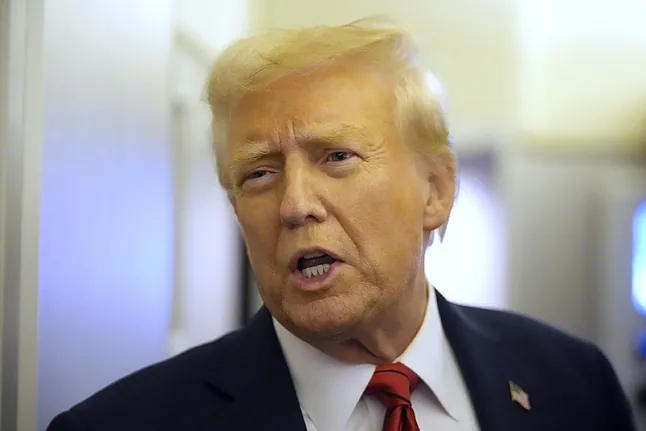That relations with Spain have never been and will not be a priority for the Government of Donald Trump is no secret. That the U.S. president has a serious problem with Spain's Defense spending and is ideologically opposed to Pedro Sánchez, is also known. If that were not enough, for various reasons, Morocco seems to be a much more important ally at the moment. So, the most that can be expected, ceteris paribus, is to get through the next four years without major surprises or dramas, relying on historical ties, military bases in our country, and little more. That is if pressures within the framework of NATO and its commitments, on the southern flank, or statements in international forums or social media, do not lead to a clash.
The best example of the lack of harmony is that, just like in his first term, a week has passed and neither he nor his ministers have spoken with their Spanish counterparts. Especially when the Secretary of State, Marco Rubio, is of Cuban origin, obviously speaks the same language, and is much more mindful of balances than the president himself, starting with the case of Venezuela. Rubio has spoken with Edmundo González, who sought refuge in our country to avoid being arrested.
In recent days, Rubio has spoken with the Foreign Ministers of the Baltic countries and Poland. He has spoken with those of Hungary and Italy, ideological allies of Trumpism. And this same week with those of France and Germany. No interest in the Iberian Peninsula, but in Rabat, something that should be concerning given how the good relationship with Mohamed VI in the past led to decisive turns, such as in the case of Western Sahara.
On his inauguration day, January 20, Trump spoke about our country from the Oval Office, criticizing that Security investment is "very low." He then got distracted in what seemed like an error, stating that Spain was one of the BRICS members [it is not] and referring to tariffs of up to 100% for members of that group, as he believes that Russia, China, Brazil, and the rest are conspiring to harm the dollar. But his problems with the government of Pedro Sánchez date back to day one.
In the summer of 2018, shortly after the vote of no confidence that brought Sánchez to La Moncloa, a NATO summit was held in Brussels. There, Trump lashed out at his allies accusing them of freeloading and taking advantage of his country. He was particularly aggressive towards Germany and Spain, which now ranks last in defense spending as a percentage of GDP, and at that time was vying with Luxembourg for that dubious honor. Trump was a torrent, confronting Sánchez with rankings in hand, as the socialist president's team recounted, with total bewilderment and much more naivety than in future occasions.
The ideological differences between them are evident, and the Spanish leader seems to be seeking a role among those who openly clash with Trump's worldview and the "Silicon Valley technocracy", urging the EU to stand up "to this threat."
But Trump's disinterest is broader. Spain does not contribute what he believes we should, it is not a nuclear power, does not share a border with Russia, is not France, Germany, or United Kingdom, nor is it an ideological ally like Viktor Orban or Giorgia Meloni. If he is trying to undermine the EU (Rubio did not even respond to the invitation from High Representative Kaja Kallas to participate in the meeting of the 27 Foreign Ministers, as his predecessor did), Spain is one of the main affected parties.
The same happened in his first term. The first conversation between Trump and Rajoy took place on February 7, 2017, to "address matters of common interest, such as security, the economy, and bilateral relations." In it, Rajoy offered himself as an "interlocutor in Europe, Latin America, and also in North Africa and the Middle East," appealing to our country's ties with the Americas on one hand, and taking advantage of the fact that with Brexit, Washington was losing its main ally amid doubts about the European integration process. Trump would receive the president at the White House five days before the referendum on October 1st. The first contact between Minister Alfonso Dastis and his counterpart Rex Tillerson did not occur until February 17, with a 15-minute interview at the G-20 ministers' meeting in Germany. The diplomat emphasized the willingness to deepen relations. In any case, Trump never accepted that outstretched hand, and relations remained just as good or bad in the following years.
